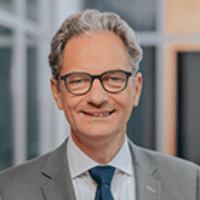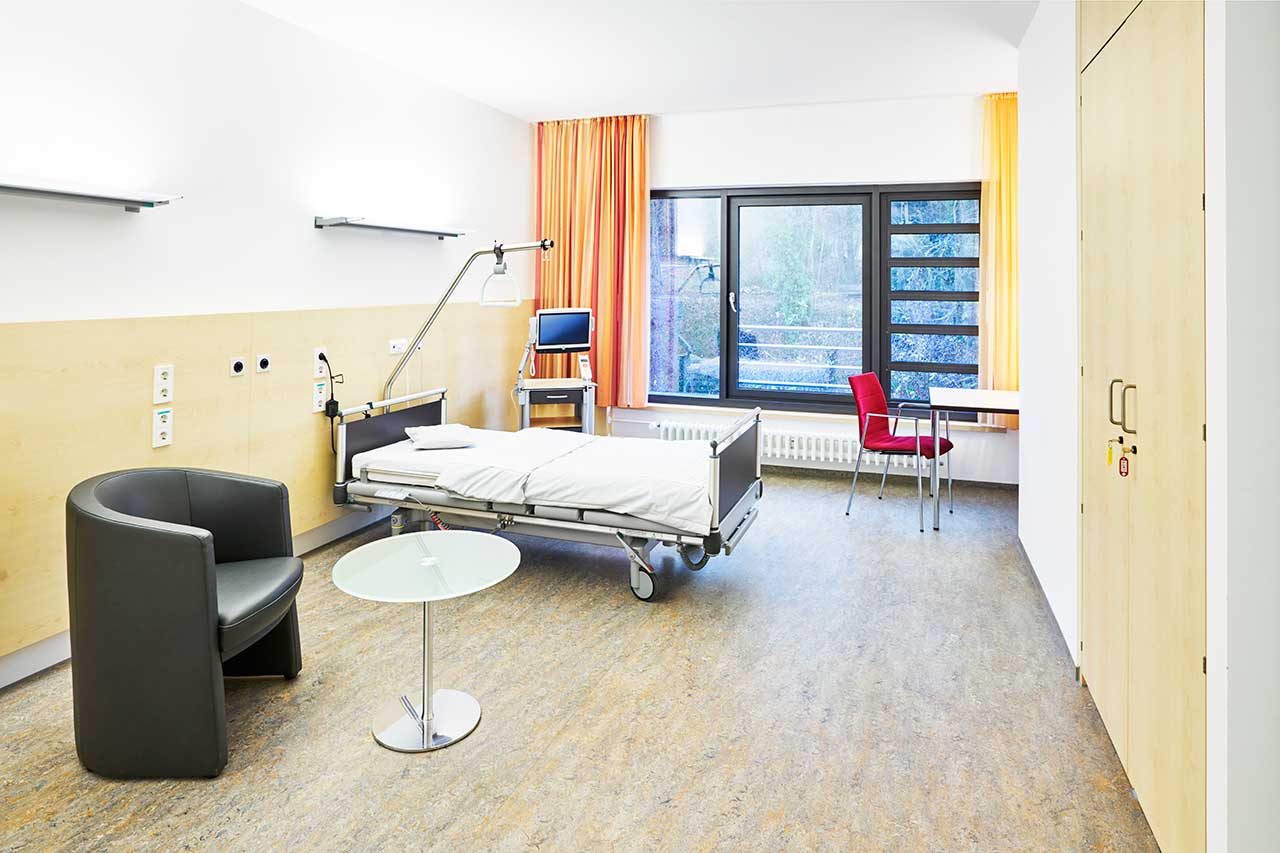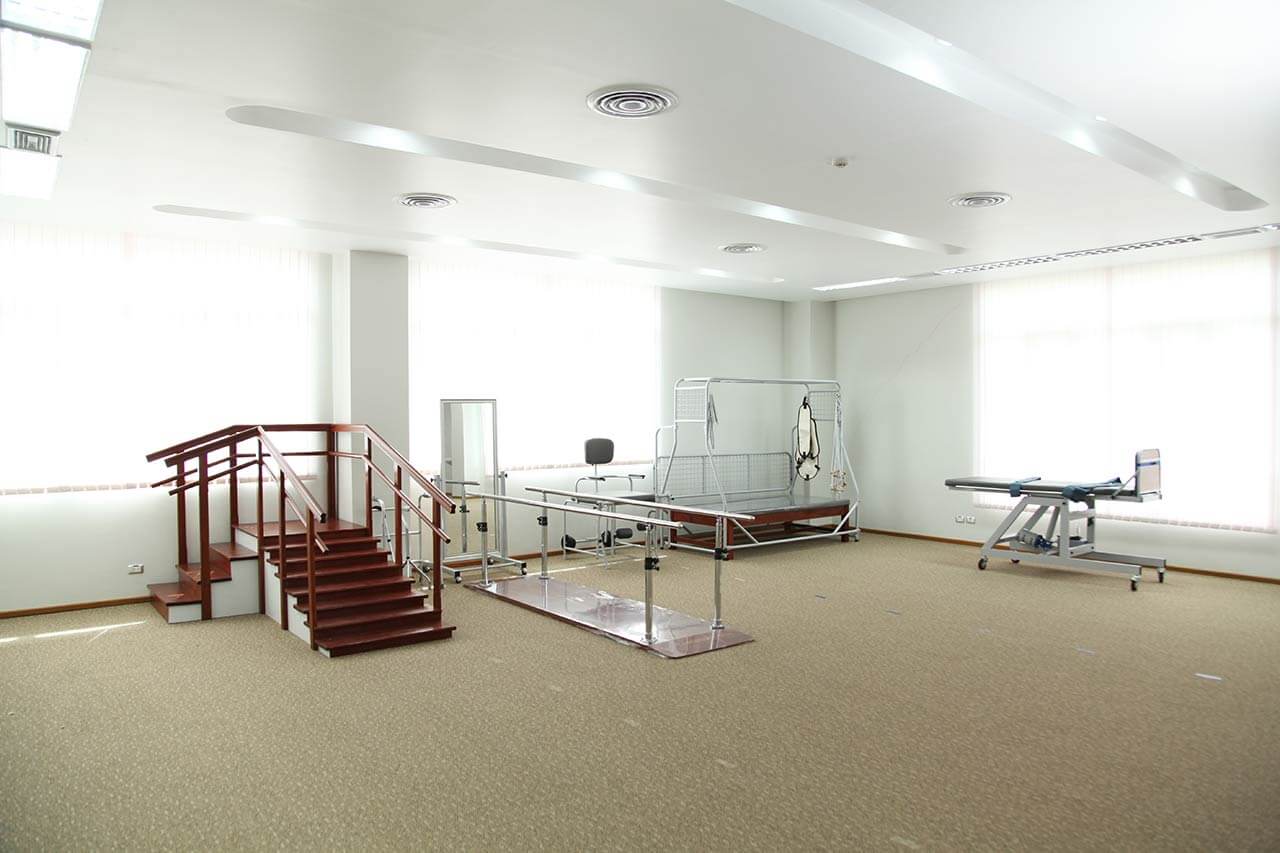
About the Department of Neurological Rehabilitation at MEDIAN Neurological Rehabilitation Clinic Magdeburg
The Department of Neurological Rehabilitation at the MEDIAN Neurological Rehabilitation Clinic Magdeburg provides high-quality rehabilitation treatment for patients after a neurological disorder or a neurosurgical intervention. Of particular interest is the rehabilitation of patients after stroke, traumatic brain injuries, spinal injuries, multiple sclerosis, Parkinson's disease, neurodegenerative diseases and other neuropathologies. The team of the department's rehabilitation therapists specializes in the neurological rehabilitation of phases B, C, D and E. With appropriate clinical indications, neurological rehabilitation can be provided on an outpatient basis. The set of rehabilitation measures is selected for each patient individually, depending on his neurological status and rehabilitation potential. Young patients are offered effective medical profession-oriented rehabilitation to restore their work capacity. The Chief Physician of the department is Prof. Dr. med. Michael Sailer.
The first and the most important stage of the patient's treatment is comprehensive diagnostics, which helps the department's specialists assess the general health of the patient and the degree of damage to the functions of the nervous system. The diagnostics may involve such examinations as electroencephalography, recording of somatosensory, auditory and visual evoked potentials, electromyography, electroneurography, Doppler ultrasonography of the peripheral vessels, radiography, abdominal ultrasound, echocardiography and many others. The doctors also accurately study the patient's medical history. Based on all the diagnostic data, the specialists elaborate an individual rehabilitation program with particular goals, which must be achieved after the rehabilitation treatment completion. The primary goal of each rehabilitation program is to maximally restore the patient's ability to self-care and reintegrate him into his usual life. To restore motor and cognitive skills, the rehabilitation therapists competently select the necessary rehabilitation measures and their optimal intensity. The decisive role is also played by the regularity of certain therapeutic procedures.
In most cases, the department's rehabilitation therapists use such effective types of rehabilitation methods as therapeutic exercises, physiotherapy, sports therapy, massage, speech therapy, mirror therapy, neuropsychological care, drug therapy, diet therapy, including the formation of proper eating habits in patients during practical classes in the training kitchen. Each type of therapy is provided by a highly-specialized expert in this area (for example, in the field of physiotherapy, speech therapy, etc.) who personally supervises each patient, monitors his progress and, if necessary, reduces or increases the intensity of training. Some types of rehabilitation treatment are provided in groups, but always under medical supervision. Special attention should also be given to the high-quality nursing care provided by the specially trained highly qualified employees. In addition, the department's medical team is convinced that a friendly attitude towards patients motivates them and creates a positive mindset on the success of rehabilitation. The doctors also promote the involvement of patients' relatives, who provide them with great support during such a difficult time.
It is worth noting that the department has an innovative Intensive Care Unit for phase B early rehabilitation. It admits patients after emergency care, who require mechanical ventilation, patients with apallic syndrome, tracheostomy and paraplegia. The department's Intensive Care Unit meets the current requirements of modern medicine.
The department specializes in rehabilitation of patients with the following neurological diseases:
- Stroke (ischemic stroke and cerebral hemorrhage)
- Traumatic brain injuries
- Spinal cord injuries
- Meningitis and encephalitis
- Multiple sclerosis
- Parkinson's disease
- Neuritis and radiculopathies
- Muscle diseases
- Neurodegenerative diseases
- Epilepsy
- Migraine
- Neurogenic swallowing disorders
- Aphasia, dysarthria
- Neurocognitive disorders
- Congenital diseases and malformations of the nervous system
- Cerebral hypoxia (for example, after intensive care or due to trauma)
- Neurological disorders, which require intensive care or mechanical ventilation
- Conditions after surgery on extra- and intracranial vessels supplying the brain
- Conditions after surgery to remove large brain and spinal cord tumors
- Other neurological disorders and pathological conditions
The range of the department's diagnostic and therapeutic services includes:
- Diagnostic tests
- Electroencephalography (EEG)
- Recording of somatosensory, auditory and visual evoked potentials
- Electromyography
- Electroneurography
- Extra- and transcranial sonography
- Doppler ultrasonography of the peripheral vessels
- Echocardiography (transthoracic and transesophageal)
- Pulmonary function testing
- Abdominal ultrasound
- 24-hour blood pressure monitoring
- X-ray diagnostics
- Swallowing assessment
- Endoscopic examinations of the gastrointestinal tract
- Clinical laboratory tests
- Neuropsychological laboratory tests and computer methods for the assessment of the patient's neuropsychological state
- Computed tomography (CT)
- Magnetic resonance imaging (MRI)
- Rehabilitation methods
- Physiotherapy
- Massage
- Lymphatic drainage
- Hydrotherapy
- Electrotherapy
- Electrostimulation
- Thermotherapy
- Cryotherapy
- Respiratory therapy
- Therapeutic exercises, including exercises in the pool, on an ergometer, a treadmill, use of the professional equipment for training balance, walking, etc.
- Sports therapy
- Water aerobics, Nordic walking, Tai-Chi (in groups)
- Medical training therapy
- Ergotherapy
- Speech therapy for the treatment of dysarthria and aphasia, as well as for the elimination of swallowing disorders
- Neuropsychological care
- Special care program for patients with apallic syndrome
- Interdisciplinary treatment of spasticity
- Drug therapy
- Formation of proper dietary habits in patients during practical classes in the training kitchen
- Medical profession-oriented rehabilitation to restore the work capacity
- Physiotherapy
- Other medical services
Curriculum vitae
Higher Education and Professional Career
- Since 2007 Chief Physician of the Department of Neurological Rehabilitation at the MEDIAN Neurological Rehabilitation Clinic Magdeburg.
- 2006 Endowed Professorship, Otto von Guericke University Magdeburg.
- 2004 Master of Business Administration.
- 1998 Senior Physician with management responsibilities, Department of Neurology, Hospital at the Otto von Guericke University Magdeburg.
- 1995 Senior Physician, Department of Neurology, Hospital at the Otto von Guericke University Magdeburg.
- 1990 - 1994 Professional training in Neurology, Department of Neurology at the Hannover Medical School.
- 1998 - 1990 Assistant at the Institute of Pathology at the Hannover Medical School.
Memberships in Professional Societies
- Board Member of the German Society of Neurorehabilitation (DGNR).
- Board Member of the Federal Association for Medical Profession-Oriented Rehabilitation.
- Head of the Medical Advisory Board of the State of Saxony-Anhalt of the German Multiple Sclerosis Society.
- Representative of the Medical Board for Neurologic Rehabilitation of the Median Kliniken Group.
Photo of the doctor: (c) MEDIAN Klinik NRZ Magdeburg




